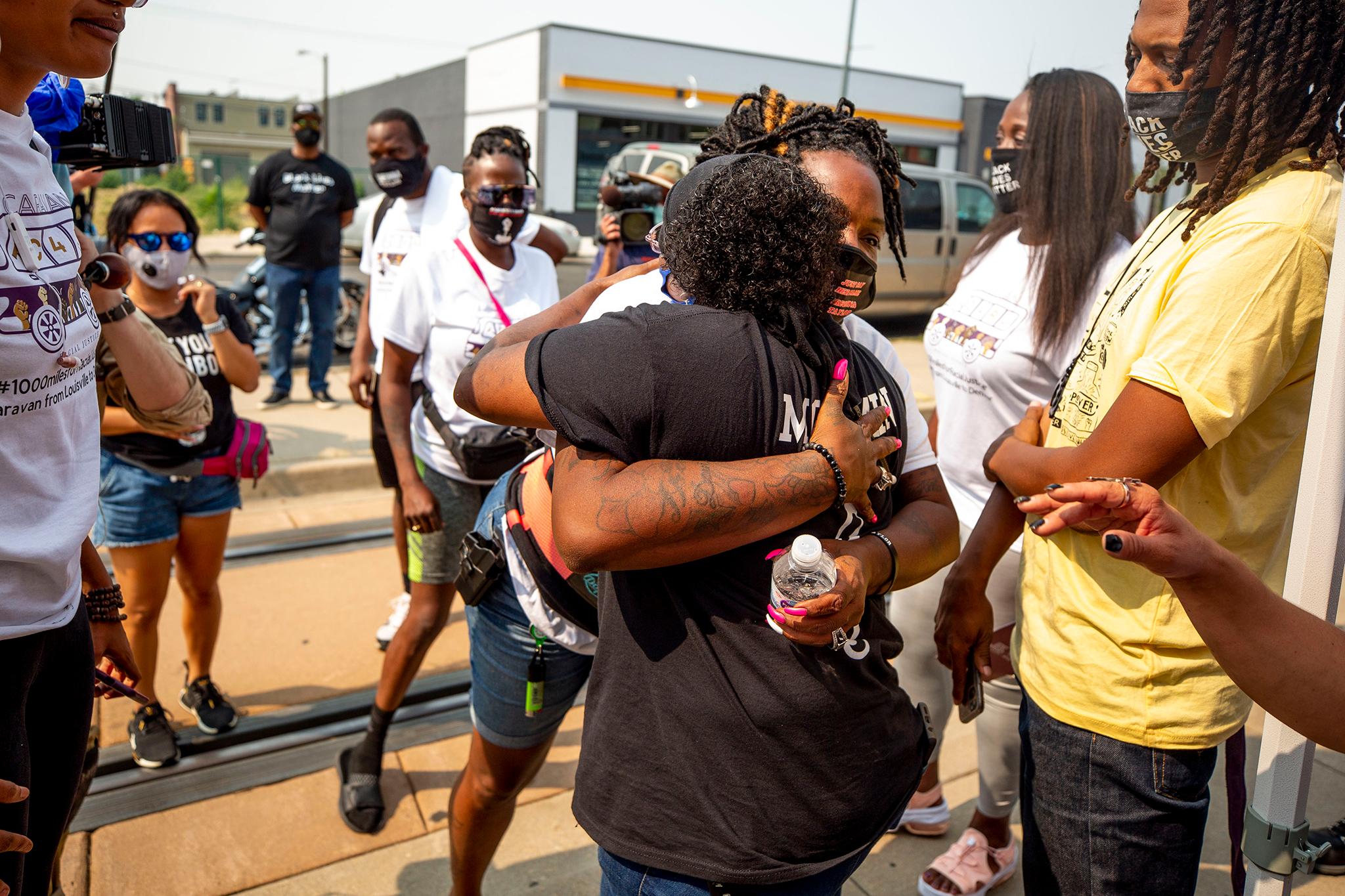Kela Duncan and Sheneen McClain were met with reverent applause Saturday when they arrived at Brother Jeff Fard's Cultural Center on Welton Street. McClain is the mother of Elijah, who was killed after Aurora police stopped him one year ago Monday. Duncan is the aunt of Breonna Taylor, who was shot by Louisville, Ky., police in her home in March.
Last month, a delegation of Colorado activists caravaned to Kentucky to support Taylor's family as they continue their fight for accountability in her death. Duncan and a dozen supporters returned the favor over the weekend. The activists met for lunch at Fard's space, a longtime center of Black culture. Duncan met Sheneen for the first time, and they embraced in a long, warm hug.
While the circumstances of Taylor and McClain's deaths differ in some ways, both tragedies resulted from what Fard called broad "dehumanization" of Black Americans by police and society. Both episodes also faded quickly from the public eye when they occurred. But the killing of George Floyd by Minneapolis police later catapulted their names into a national consciousness. They became symbols, and their families suddenly became voices of a movement.
They've also been thrust into the hard work of managing their loved ones' legacies as election year politics suck their memories into the political realm.
"They are suddenly thrust into the limelight, where they're suddenly expected to be a public spokesperson for all kinds of different causes when truly they're a family grieving, mourning and trying to work toward some kind of healing," Mari Newman, the McClain family's attorney, told Denverite. "It's incredibly difficult for any family who is grieving."
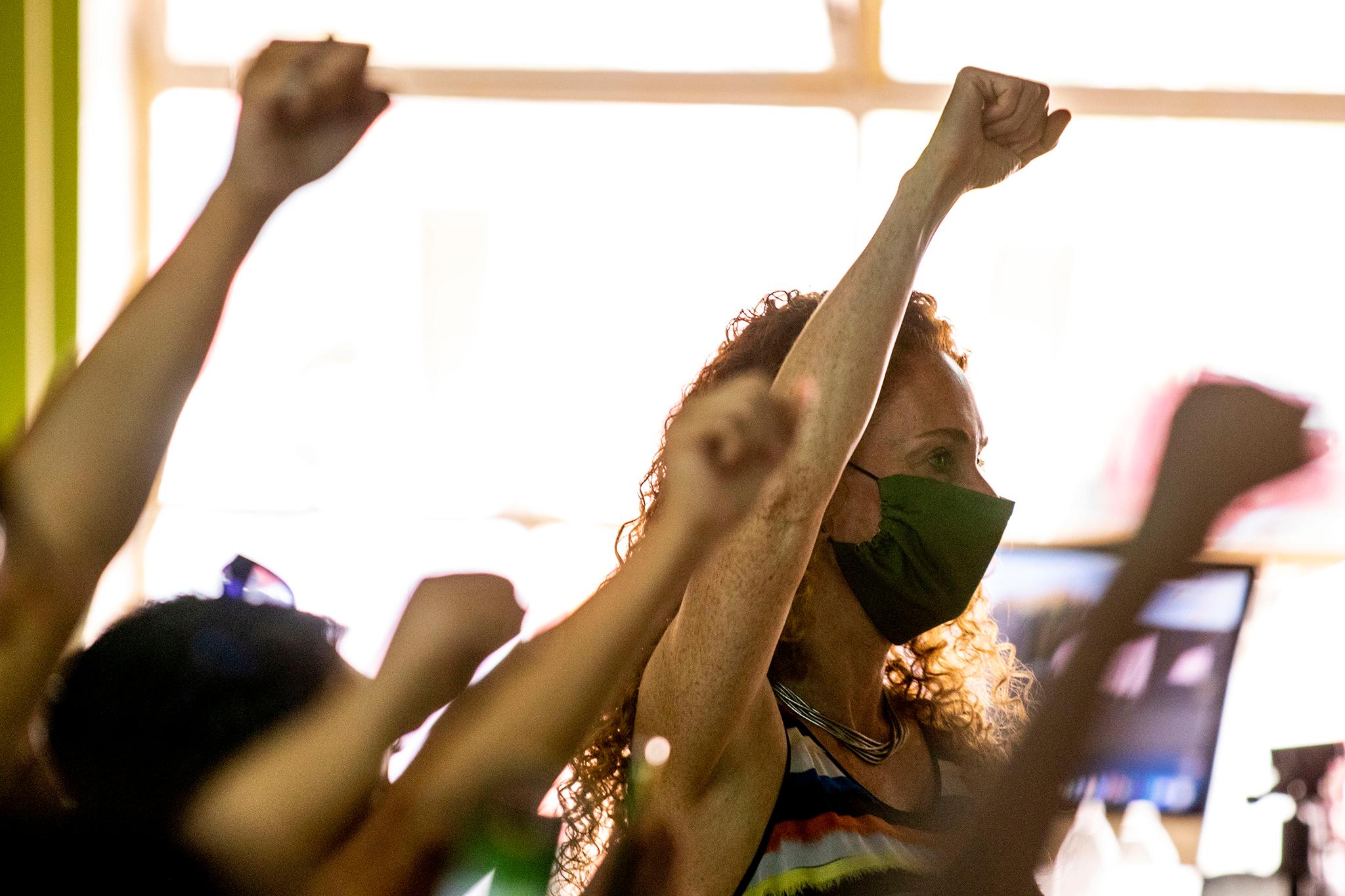
Both Duncan and McClain declined to speak to press during the lunch. Newman said her client is taking a break from media attention as the anniversary of Elijah's death nears.
The last few months have been tumultuous.
A protest demanding justice for Elijah last month ended with a driver of a Jeep speeding through a crowd on I-225 and one demonstrator shooting another as he reacted to the driver's sudden appearance. A violin vigil a few weeks prior ended with police in riot gear pushing protesters off the Aurora Municipal Center's lawn. Last week, the family asked Republican congressional candidate Steve House to remove Elijah's name and photo from materials promoting a prayer breakfast, and McClain's mother recently cut ties with organizers who were planning a large demonstration to mark her son's grim anniversary.
In a video posted to Facebook Wednesday, McClain and organizer Candace Bailey said they would no longer permit anyone to plan events for Elijah without their consent.
"There's been a lot of disappointing bumps in this road. A lot," Bailey said. "Going forward, we're going to make sure there's a lot less disappointing bumps in the road."
Taylor's family has dealt with a similar burden. It's a difficult needle to thread, since families still need momentum as they seek justice.
Stachelle Bussey, a minister who accompanied Duncan on her trip from Louisville, said Taylor's family has also dealt with people using her name without permission.
"Sometimes people have good intentions, but they'll use a name to try to promote an event and try to get an agenda across. It's not necessarily bad all the time, it's just sometimes I don't think people understand the disrespect," she said. "You should talk to the family."
The Taylor family has generally embraced the movement that's grown around them, she added, and they show up to public demonstrations as often as they can. Bussey said it can be hard, since every protest is a reminder of tragedy.
"I probably would grieve every time I saw a picture or heard her name," she said. But if she knew her loved one's name was being used to create change, "it doesn't sting as bad."
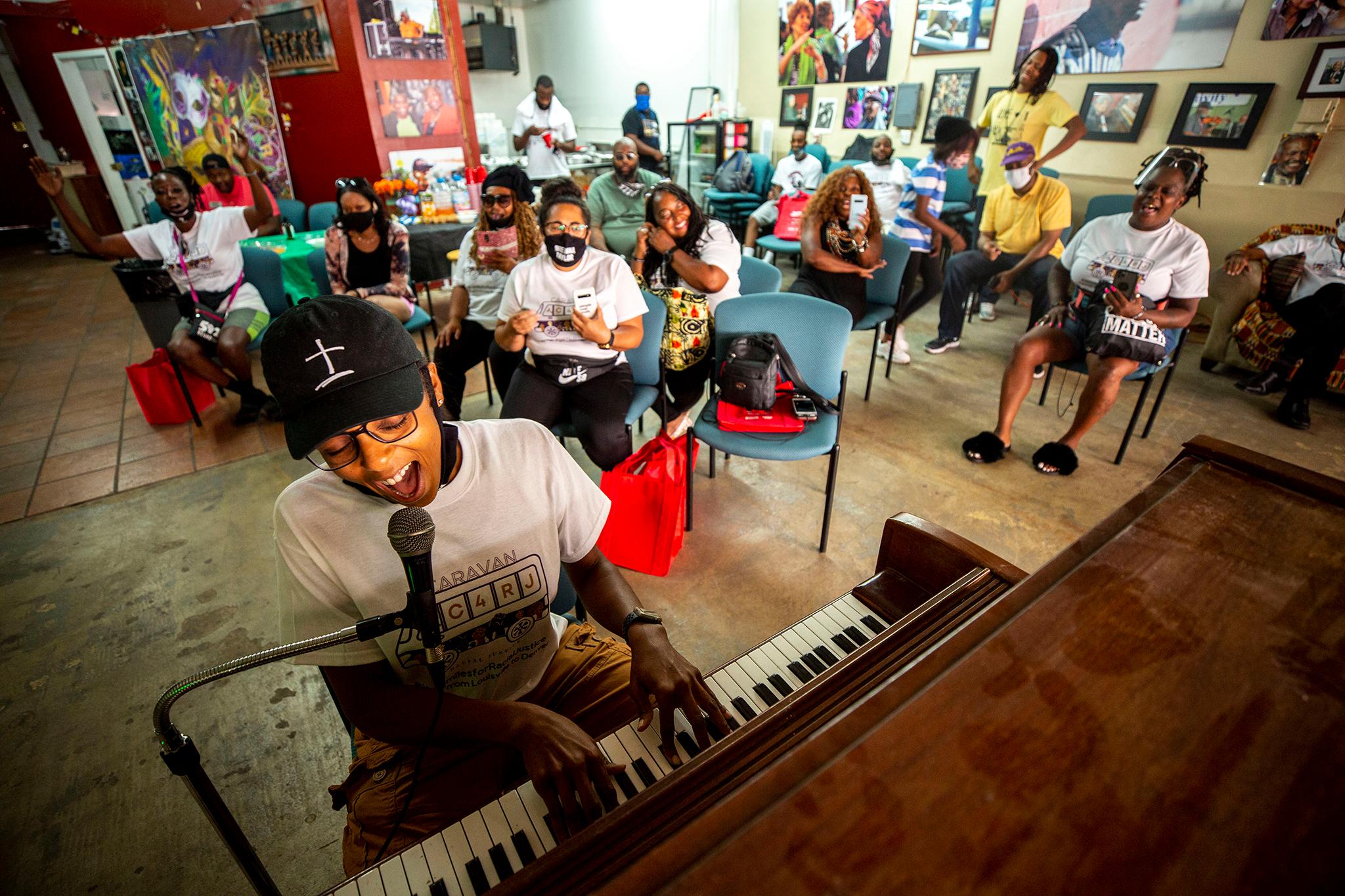
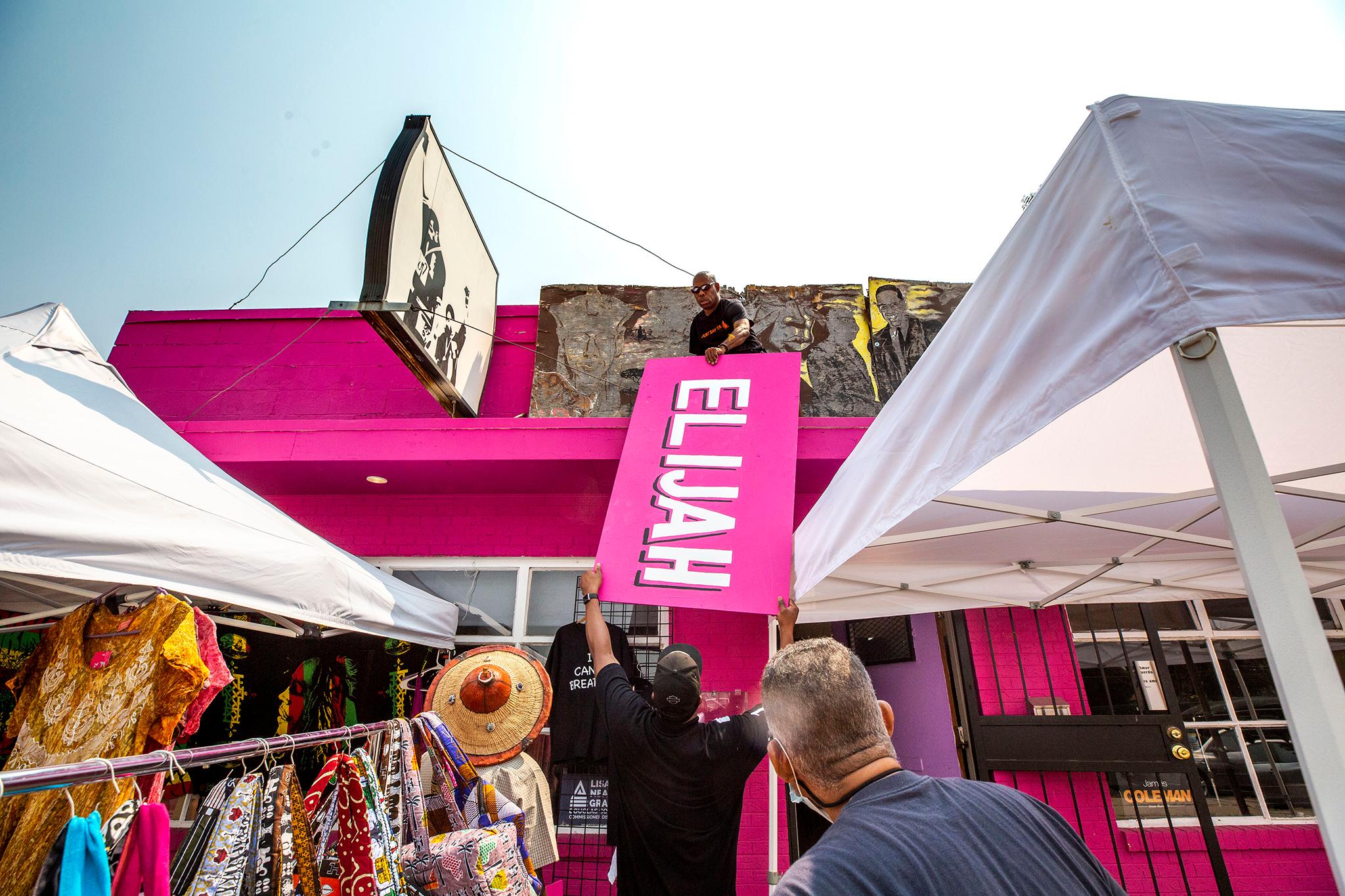
Fard said politicians will always try to use names like McClain's and Taylor's during an election year.
"Elijah McClain is a national, and even international, name right now. And I don't see anyone that's going to be able to put the brakes on," he said. "We do risk dehumanizing someone in the process, but that's what we're fighting for. That is the central crux of this movement. Black Lives Matter. People are dehumanized."
But Fard said people like McClain are now "in a better place." It's the people who they left behind who must continue dealing with pain and inequity. It's why he believes demonstrators, politicians and the press must approach them with grace while their battles for justice continue.
"We need to be sensitive around the families," he said. But "if this tragedy is politicized and it leads to better policy, then there might be some light at the end of this tunnel."
Fard spoke from the microphone to the crowd of activists from Colorado and Kentucky Saturday.
"We will not lay down and pass this struggle on to another generation," he said.
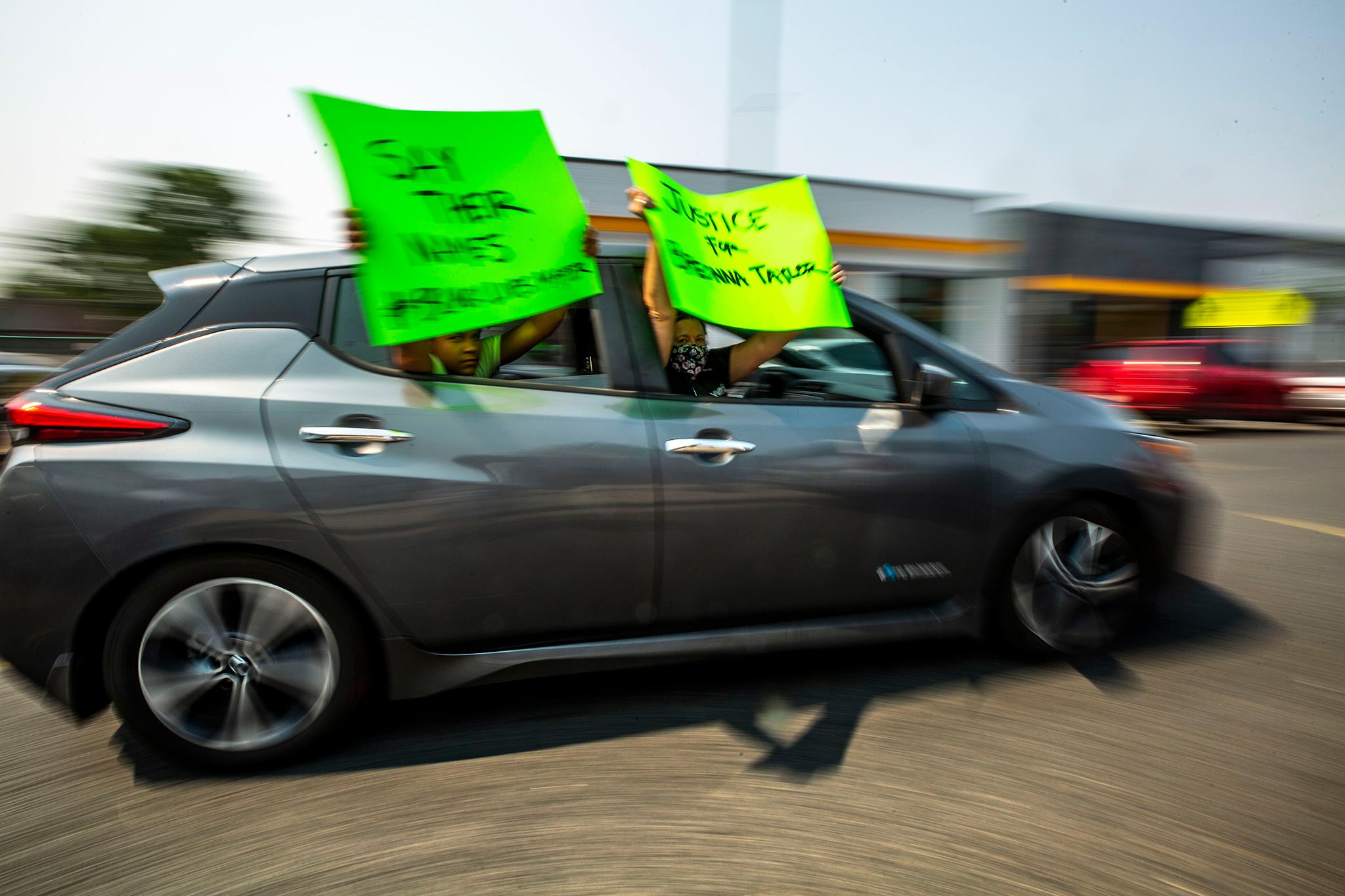
That evening, McClain, Duncan and their supporters gathered at the State Capitol to read the names of Elijah, Breonna and many others lost to police brutality.
Later, a group of people confronted police at the city's jail on Colfax Avenue. They threw fireworks over a fence as officers lobbed canisters of tear gas at them.
"To have violence in his name, to have people using his name for messages that are not necessarily consistent with how he lived his life, is very challenging for his family," Newman said earlier on Saturday. "The fight for justice and equality is critical for us as a society moving forward. But we can never forget that we are talking about the lives of actual human beings with grieving families who are working to heal."

